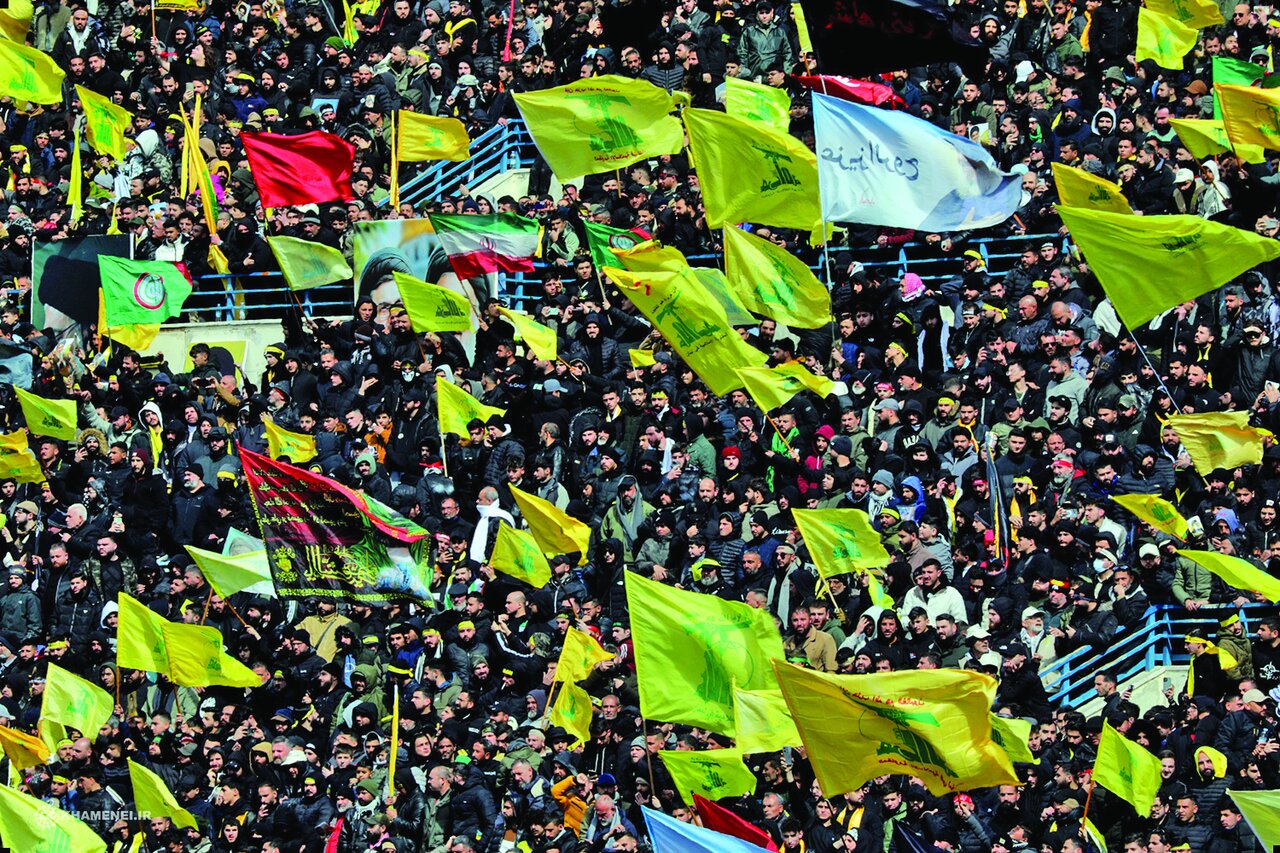The Lebanon I witnessed

TEHRAN - Younes, a young Hezbollah fighter in his early 30s, accompanied our Iranian team during our visit to Lebanon for the funeral of Sayyed Hassan Nasrallah. On our way back from the war-torn southern regions to Beirut, he constantly briefed us on the situation along the frontlines.
His age might not suggest it, but his political and military analysis was remarkably sharp. For him, Israel’s tactical—though not strategic—advantage stems primarily from its technological superiority. Yet he did not forget to emphasize the bigger picture: “The real enemy is the United States. It is Washington that arms and enables the regime.”
This perspective was not unique to Younes. I heard the same view repeatedly in several villages near the occupied borders, villages that had recently endured clashes with Israeli forces. As families slowly returned to the ruins of their homes, colorful banners appeared across the rubble, declaring that the devastation was made in America.
One slogan stood out: “America is the mother of terrorism.” For many Lebanese Shiites, the conflict with Israel cannot be separated from the United States.
When they frame the struggle in this way, even the assassination of Nasrallah is seen as part of a broader U.S.-imposed war. Israel, in their eyes, is merely the hand emerging from an American sleeve. During one of our visits to the south, I came across a booklet containing translated excerpts from a speech by Ayatollah Khamenei distributed by Hezbollah’s cultural wing.
Intrigued, I later searched for the original. In it, Khamenei explained that Western colonial powers have long viewed West Asia as a vital energy hub and a geostrategic crossroads, a region whose resources fuel Western industry and commerce. It is precisely this perspective, he argued, that led to the creation of Israel as a colonial outpost in the heart of the region. This broader vision continues to shape the resistance’s understanding of the conflict today.
Seen from this horizon, the anti-American sentiment of Lebanese Shiites and resistance supporters is not a blind emotional reaction but a logical conclusion drawn from lived experience.
For them, fighting Israel is not only about defending homes and survival—it is about recognizing and resisting the larger forces imposing war on their lives. That is why the repeated visits of U.S. envoys pressuring Lebanon to disarm the resistance only intensify their anger. The people know such demands are designed to pave the way for further Israeli aggression.
The reality for the Lebanese is stark and simple: they have no choice but to stand against what is being forced upon them. To understand this, one only needs to transpose the situation.
Would the French people during World War II have accepted American mediation that favored the Nazis and demanded that French resistance fighters lay down their arms? If the French had never accepted it, why should the Lebanese? Reducing this complex struggle to shallow labels like “Iranian proxies” betrays the human reality of a people confronting invasion and imposition.
What I witnessed in March 2025, during the funeral of Sayyed Hassan Nasrallah, was not merely emotional mourning—it was the will of a people saying “no” to foreign impositions. Hundreds of thousands gathered along Beirut’s highways to honor their fallen leader.
Suddenly, Israeli warplanes swooped low in a crude attempt to intimidate the masses. The contrast was stark: a peaceful sea of men, women, the elderly, and children below—and armed F-15s and F-35s, made in America, snarling above.
In that moment, as I tried to analyze Israel’s motives as a journalist, I was shaken from my thoughts by the cry of a young Lebanese mother. With one hand pushing her baby’s stroller and the other raised in a clenched fist, she shouted “Labayk ya Nasrallah” at the warplanes overhead. Her defiance echoed the words of Younes and the villagers of the south. For them, this conflict is not simply about one border or one leader—it is about resisting an imposed order on Lebanon, Syria, Iraq, Yemen, and even Iran.
What they demand is simple: that their own will—not the will of Washington or Tel Aviv—shape their destiny.
The anti-American sentiment of Lebanese Shiites and resistance supporters is not a blind emotional reaction but a logical conclusion drawn from lived experience.
For them, this conflict is not simply about one border or one leader—it is about resisting an imposed order on Lebanon, Syria, Iraq, Yemen, and even Iran.
Mohammad Sadegh Alizadeh is an Iranian journalist and author of Twelve Zero Three, a work that blends travel narrative, field observations, reflections, and journalistic analysis on the funeral of Sayyed Hassan Nasrallah in southern Lebanon.
Leave a Comment